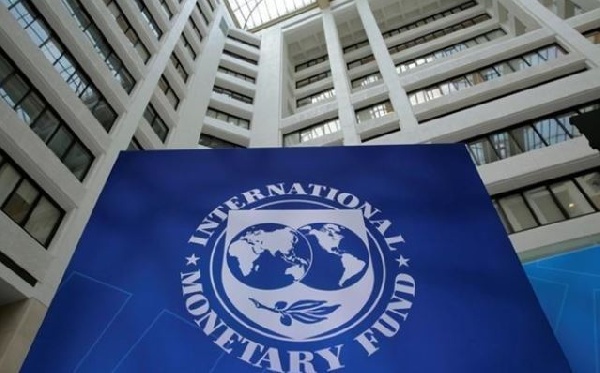The International Monetary Fund (IMF) has forecasted a 4.2% economic growth for Africa by 2025, pointing to steady but slow progress across the continent.
This projection was highlighted in the IMF’s October 2024 World Economic Outlook, released during the ongoing Annual Meetings in Washington, DC, a joint event with the World Bank Group (WBG).

The meetings provide a platform for finance leaders to review the global economic landscape and propose solutions to emerging challenges.
The Fund estimates that growth in Sub-Saharan Africa will remain at 3.6% in 2024, the same as in 2023, before rising to 4.2% by the end of 2025.
“Growth in Sub-Saharan Africa is expected to be steady at around 3.6% this year, similar to last year, and is projected to increase to 4.2% in 2025,” stated Pierre-Olivier Gourinchas, IMF Chief Economist.
He noted that while growth is expected to pick up, the region continues to face significant challenges, including climate shocks and conflicts, making the economic outlook uneven.
Jean-Marc Natal, Division Chief of the IMF’s Research Department, echoed this, stating that while progress had been made in recent years, growth remains “uneven and too low.” Inflation is stabilizing in some countries but still remains far from targets in many, with a third of the region facing double-digit inflation rates.
Debt levels also remain a concern, as noted by Natal. “Debt in the region is still high, though it has stopped increasing in some countries, and efforts to consolidate have begun.”
Natal emphasized the need for tight monetary policies and fiscal consolidation in high-inflation countries to mitigate inflationary pressures.
He also highlighted the challenge of balancing fiscal consolidation with relief efforts, such as those needed in flood-affected countries like Nigeria, where support for vulnerable populations is critical.
Globally, the IMF projected economic growth to remain at 3.2% in 2024 and 2025, with emerging Asia showing strong performance, despite a slight downward revision for China to 4.8% in 2024.
Growth in low-income countries was revised down due to conflicts and climate-related shocks.
Inflation, which peaked at 9.4% year-on-year in the third quarter of 2022, is expected to decline to 3.5% by the end of 2025, with many countries nearing central bank targets.
The IMF advised policymakers to balance monetary and fiscal policies alongside structural reforms to ensure inflation is kept in check.
























































![[FREE FREE MONEY] Predict and Win a Guaranteed GH¢200 From Us EVERY WEEK](https://wordpress.ghanatalksradio.com/wp-content/uploads/2022/02/Predict-and-Win-Final-09-03-2021-218x150.jpg)
![[Predict & Win – 8th/Oct.] WIN A Guaranteed ¢200 From Us This Week](https://wordpress.ghanatalksradio.com/wp-content/uploads/2021/10/maxresdefault-16-218x150.jpg)
![[Predict & Win – 2nd] WIN A Guaranteed ¢200 From Us This Week](https://wordpress.ghanatalksradio.com/wp-content/uploads/2021/09/maxresdefault-50-218x150.jpg)
![[Predict & Win – 25th] WIN A Guaranteed ¢200 From Us This Week](https://wordpress.ghanatalksradio.com/wp-content/uploads/2021/09/maxresdefault-36-218x150.jpg)
![[Predict & Win – 18th] WIN A Guaranteed ¢200 From Us This Week](https://wordpress.ghanatalksradio.com/wp-content/uploads/2021/09/maxresdefault-23-218x150.jpg)










![[National cathedral] See full list of churches that have contributed since 2018](https://wordpress.ghanatalksradio.com/wp-content/uploads/2020/09/Ghana-National-Cathedral-GhanaTalksRadio-100x70.jpg)



